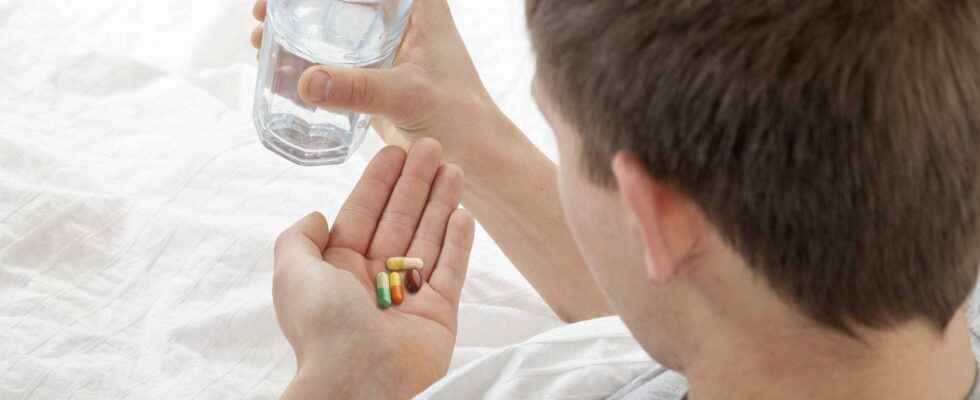At the very beginning of the pandemic, only paracetamol was offered to patients with a mild to moderate form of SARS-CoV-2. Since then, research has made good progress and treatments are now available for non-hospitalized patients. Overview.
Fortunately, not all patients infected with SARS-CoV-2 and symptomatic are hospitalized. For those recovering at home, there are now treatments available, as long as they are taken soon enough after the supposed date of infection. Indeed, in the early days of the contamination by the virus, replication viral is intense. It’s a window strategic therapy: stopping the spread of virus at this stage can prevent hospitalization or even death. In existing treatments, several therapeutic targets:
- monoclonal antibodies: they prevent the entry of the virus into human cells;
- protease inhibitors: they stop viral replication by preventing the cutting of protein ;
- replication inhibitorsRNA viral: they induce mutations in the replication of the virus.
Researchers have summarized the treatments currently available for non-hospitalized patients in an article published in the JAMA.
A monoclonal antibody effective against Omicron
Sotrovimab is an antibody monoclonal directed against the Spike protein of the virus. It is the only monoclonal antibody that remains effective against varying Omicronif administered within 10 days of the onset of symptoms. It is indicated in mild to moderate forms of the disease. It can be used at the pregnant woman.
An effective protease inhibitor but to be used with caution
Ritonavir and nirmatrelvir are used in combination. Ritonavir has been used for many years in the HIV treatment. They are able to inhibit the main protease of SARS-CoV-2, in charge of protein cutting, a step necessary for viral replication. It is indicated in patients at risk of developing a severe form of the disease and must be administered within the first five days. In this context, it has shown very good efficacy on the risk of hospitalization and death, in a trial including 2,246 patients. It is often the treatment chosen first because of its effectiveness and ease of use (oral route).
However, this drug requires precautions for use. Indeed, it has the ability to inhibit CYP3A, a cytochrome capable of metabolizing certain molecules. It therefore interacts with many other drugs such as amiodarone, rifampicin, rivaroxaban, statins… Problem: it is indicated for patients at risk, i.e. those who already have drug treatments for their pathology to long course.
A nucleoside analogue to produce mutations in the virus
Remdesivir prevents viral replication by producing mutations in its sequence genetic : it is inserted in place of another nucleoside. Initially planned for hospitalized patients, it would also seem to have an interest in non-hospitalized patients at high risk of having a severe form of the disease. It must be taken within the first seven days after contamination and is administered intravenously over three days. It can be used at the pregnant woman.
A viral polymerase inhibitor that needs further investigation
the molnupiravir seems to have an effect on the prevention the risk of hospitalization in patients with a mild to moderate form and at risk of a severe form if administered within the first five days. Nevertheless, this molecule is strongly suspected of being mutagen : it could favor the emergence of new variants of the virus. It should only be used if no other treatment is available. It should not be used in pregnant women or children.
Interested in what you just read?
Subscribe to the newsletter Health question of the week : our answer to a question you ask yourself (more or less secretly). All our newsletters
